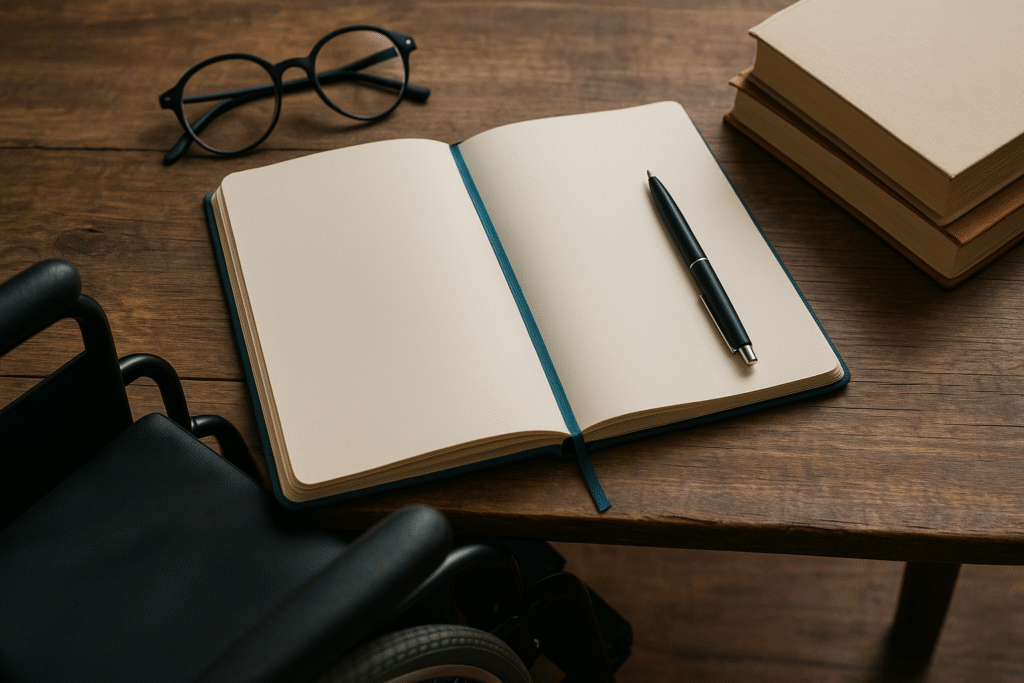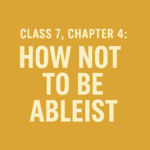When we think of Indian literature, our minds often jump to the towering names of Premchand, Tagore, Ismat Chughtai, or contemporary writers like Arundhati Roy and Jhumpa Lahiri. But there is a question that rarely gets asked: Where are the disabled writers?
In a country where over 26 million people live with disabilities (Census 2011, and the numbers are far higher today), the absence of disabled voices in mainstream literature is more than a gap—it is a silence that tells its own story.
Disability in Indian Storytelling: Present but Misrepresented
Disability as a theme is not missing in Indian writing. In fact, it often appears—but almost always in ways that reinforce stereotypes. Disabled characters are written either as objects of pity, tragic figures doomed to suffering, or as superhuman inspirations who exist only to teach the “able-bodied” a moral lesson.
Think of Bollywood adaptations like Black (inspired by Helen Keller’s story) or novels where blindness, paralysis, or “madness” are used as convenient plot devices. These depictions may create sympathy, but they rarely allow disabled people to speak for themselves, as complex individuals with dreams, desires, and contradictions.
What is missing are disabled authors telling their own stories.
Why Disabled Writers Remain Invisible
The invisibility of disabled writers in India has many reasons:
- Barriers to Education and Literacy
Despite inclusive education policies, many disabled children still drop out of school due to inaccessible classrooms, lack of trained teachers, or outright discrimination. Fewer students reach the level where they can pursue writing as a career. - Publishing Industry Gatekeeping
Mainstream publishers often claim to support diversity, but disability is not yet seen as “marketable.” Manuscripts by disabled authors are sidelined, while non-disabled authors continue writing about disability. - Economic Struggles
Writing is rarely a financially stable career in India. For many disabled people, survival and access to healthcare take precedence over the luxury of creative expression. - Societal Stigma
Families and communities often discourage disabled individuals from pursuing the arts, pushing them instead toward “safe” careers—if they are allowed education at all. Writing is seen as impractical, not empowering.
Global Examples That Show the Way
Internationally, writers like Helen Keller, Jean-Dominique Bauby (The Diving Bell and the Butterfly), and more recently Alice Wong (Disability Visibility) have shown how powerful disabled voices can reshape literature. Their works are not just about disability—they are about being human in all its fullness.
India, however, has very few comparable names in the literary mainstream. There are grassroots efforts—disabled poets performing at small festivals, self-published memoirs, or blogs run by activists—but these remain on the margins, rarely reaching national or international readerships.
Why Representation by Disabled Writers Matters
- Authenticity of Voice: When a blind poet writes about seeing the world, or when a wheelchair-user pens fiction about mobility, the perspective is layered with lived reality no outsider can replicate.
- Breaking Stereotypes: Literature by disabled authors challenges lazy tropes—showing disabled people not as angels or burdens, but as lovers, workers, thinkers, rebels.
- Cultural Record: Stories told by disabled writers document the lived experience of millions. Without them, Indian literature remains incomplete.
- Inspiration (the right kind): Not the clichéd “overcame all odds” narrative, but the genuine inspiration that comes from honesty, creativity, and resilience.
The Digital Shift: A Ray of Hope
Today, blogs, self-publishing platforms, and social media have opened doors. Disabled authors who were once ignored by traditional publishers are now creating their own readerships. For instance:
- Blogs by disability activists in India highlight policy gaps and personal experiences.
- Instagram poets with disabilities are gaining visibility, using short, powerful verses.
- Independent anthologies on disability rights are beginning to emerge, often crowd-funded.
While the scale is still small, the digital revolution is providing disabled writers with a space where publishers once erected barriers.
What Needs to Change
For Indian literature to truly reflect the diversity of its people, we need structural change:
- Accessible Education: From school libraries to creative writing workshops, spaces must be designed to enable disabled students to learn, read, and write with dignity.
- Inclusive Publishing: Publishers must actively seek manuscripts from disabled writers, not as token diversity projects but as valuable literary contributions.
- Literary Festivals and Awards: Jaipur Literature Festival, Sahitya Akademi, and others should create dedicated platforms for disabled voices, moving them from the margins to the main stage.
- Reader Awareness: Readers like us must demand books by disabled authors, review them, share them, and make them visible.
- Mentorship Networks: Established writers can mentor emerging disabled authors, helping them navigate an industry that remains daunting.
Conclusion: Completing the Story
Indian literature has always prided itself on being diverse—spanning dozens of languages, cultures, and histories. But until disabled writers are given equal space, it remains an unfinished narrative.
Their absence is not because they lack talent or stories. It is because society has built walls around who gets to write, who gets to be published, and whose voice is considered worthy. Breaking those walls is not charity. It is justice.
Perhaps the next Premchand or Arundhati Roy of our times is already here—sitting in a small town, typing on a screen-reader, or scribbling poems between doctor’s appointments. All they need is for us, the readers, publishers, and institutions, to listen.
Because when disabled writers speak, Indian literature will finally hear its missing voices.



